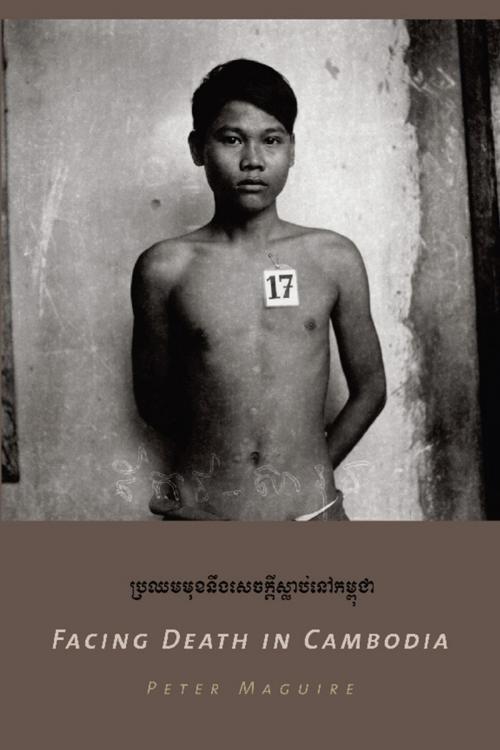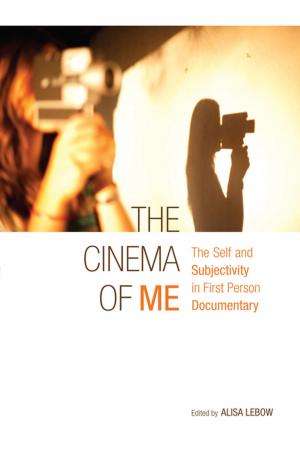Facing Death in Cambodia
Nonfiction, History, Asian, Asia, Social & Cultural Studies, Political Science, International, International Relations| Author: | Peter Maguire | ISBN: | 9780231509398 |
| Publisher: | Columbia University Press | Publication: | March 30, 2005 |
| Imprint: | Columbia University Press | Language: | English |
| Author: | Peter Maguire |
| ISBN: | 9780231509398 |
| Publisher: | Columbia University Press |
| Publication: | March 30, 2005 |
| Imprint: | Columbia University Press |
| Language: | English |
The Khmer Rouge regime took control of Cambodia by force of arms, then committed the most brazen crimes since the Third Reich: at least 1.5 million people murdered between 1975 and 1979. Yet no individuals were ever tried or punished. This book is the story of Peter Maguire's effort to learn how Cambodia's "culture of impunity" developed, why it persists, and the failures of the "international community" to confront the Cambodian genocide. Written from a personal and historical perspective, Facing Death in Cambodia recounts Maguire's growing anguish over the gap between theories of universal justice and political realities.
Maguire documents the atrocities and the aftermath through personal interviews with victims and perpetrators, discussions with international and NGO officials, journalistic accounts, and government sources gathered during a ten-year odyssey in search of answers. The book includes a selection of haunting pictures from among the thousands taken at the now infamous Tuol Sleng prison (also referred to as S-21), through which at least 14,000 men, women, and children passed—and from which fewer than a dozen emerged alive.
What he discovered raises troubling questions: Was the Cambodian genocide a preview of the genocidal civil wars that would follow in the wake of the Cold War? Is international justice an attainable idea or a fiction superimposed over an unbearably dark reality? Did issues of political expediency allow Cambodian leaders to escape prosecution?The Khmer Rouge violated the Nuremberg Principles, the United Nations Charter, the laws of war, and the UN Genocide Convention. Yet in the decade after the regime's collapse, the perpetrators were rescued and rehabilitated-even rewarded-by China, Thailand, the United States, and the UN. According to Peter Maguire, Cambodia holds the key to understanding why recent UN interventions throughout the world have failed to prevent atrocities and to enforce treaties.
The Khmer Rouge regime took control of Cambodia by force of arms, then committed the most brazen crimes since the Third Reich: at least 1.5 million people murdered between 1975 and 1979. Yet no individuals were ever tried or punished. This book is the story of Peter Maguire's effort to learn how Cambodia's "culture of impunity" developed, why it persists, and the failures of the "international community" to confront the Cambodian genocide. Written from a personal and historical perspective, Facing Death in Cambodia recounts Maguire's growing anguish over the gap between theories of universal justice and political realities.
Maguire documents the atrocities and the aftermath through personal interviews with victims and perpetrators, discussions with international and NGO officials, journalistic accounts, and government sources gathered during a ten-year odyssey in search of answers. The book includes a selection of haunting pictures from among the thousands taken at the now infamous Tuol Sleng prison (also referred to as S-21), through which at least 14,000 men, women, and children passed—and from which fewer than a dozen emerged alive.
What he discovered raises troubling questions: Was the Cambodian genocide a preview of the genocidal civil wars that would follow in the wake of the Cold War? Is international justice an attainable idea or a fiction superimposed over an unbearably dark reality? Did issues of political expediency allow Cambodian leaders to escape prosecution?The Khmer Rouge violated the Nuremberg Principles, the United Nations Charter, the laws of war, and the UN Genocide Convention. Yet in the decade after the regime's collapse, the perpetrators were rescued and rehabilitated-even rewarded-by China, Thailand, the United States, and the UN. According to Peter Maguire, Cambodia holds the key to understanding why recent UN interventions throughout the world have failed to prevent atrocities and to enforce treaties.















